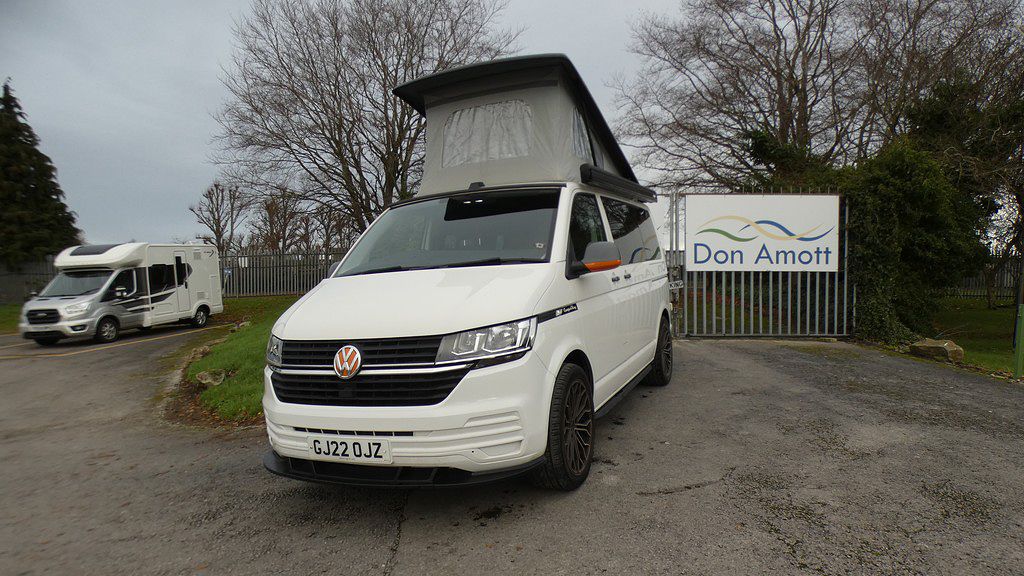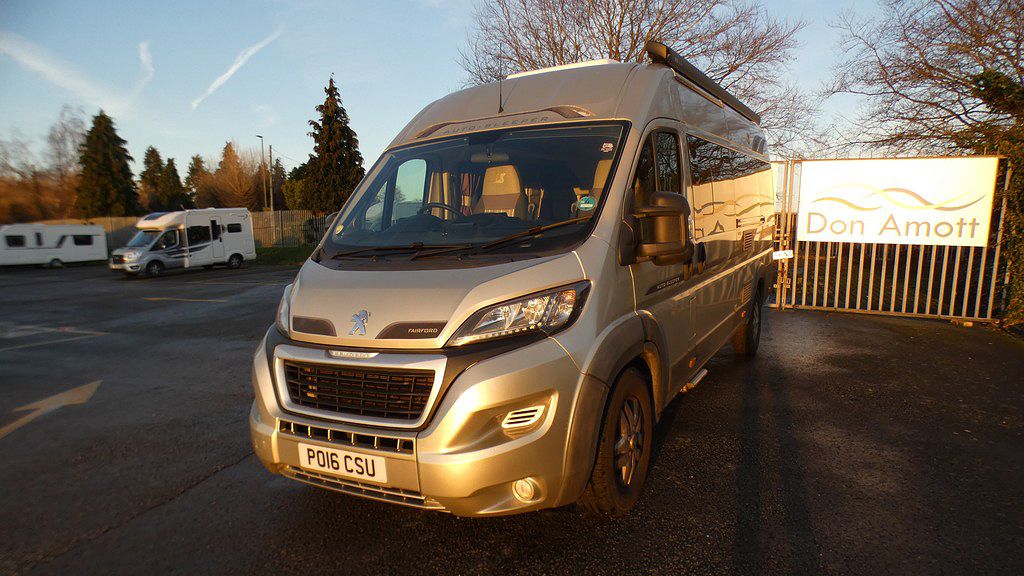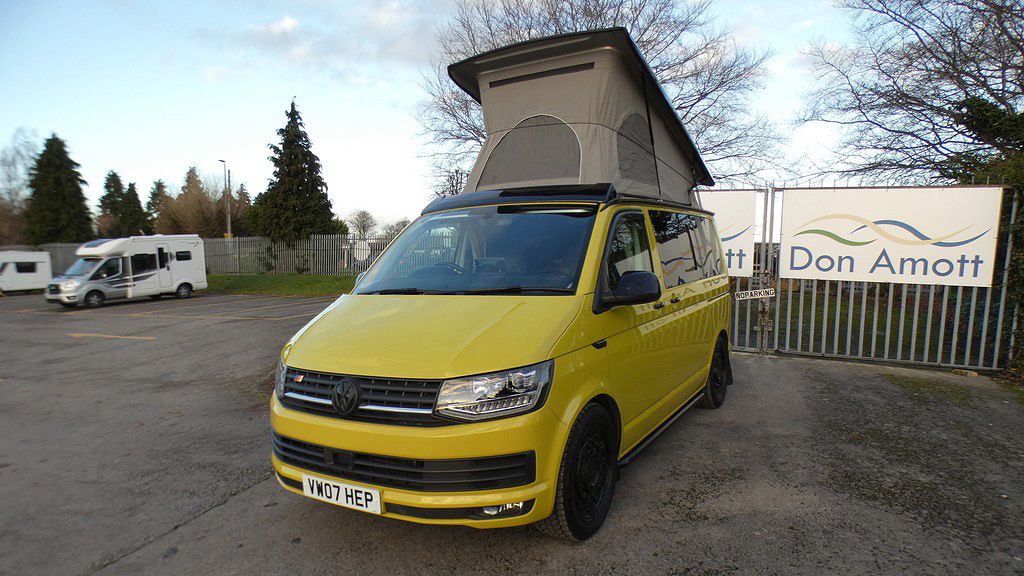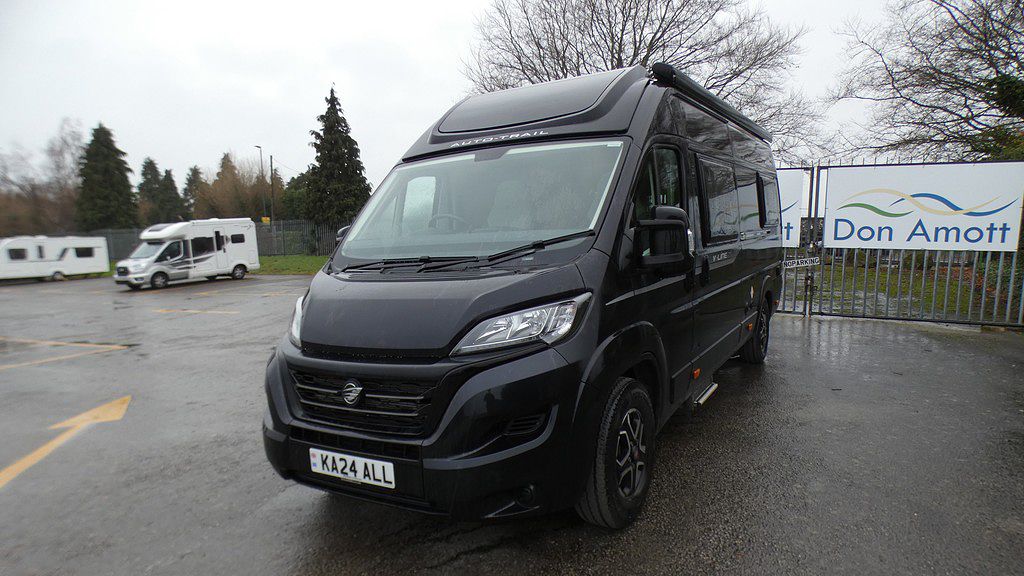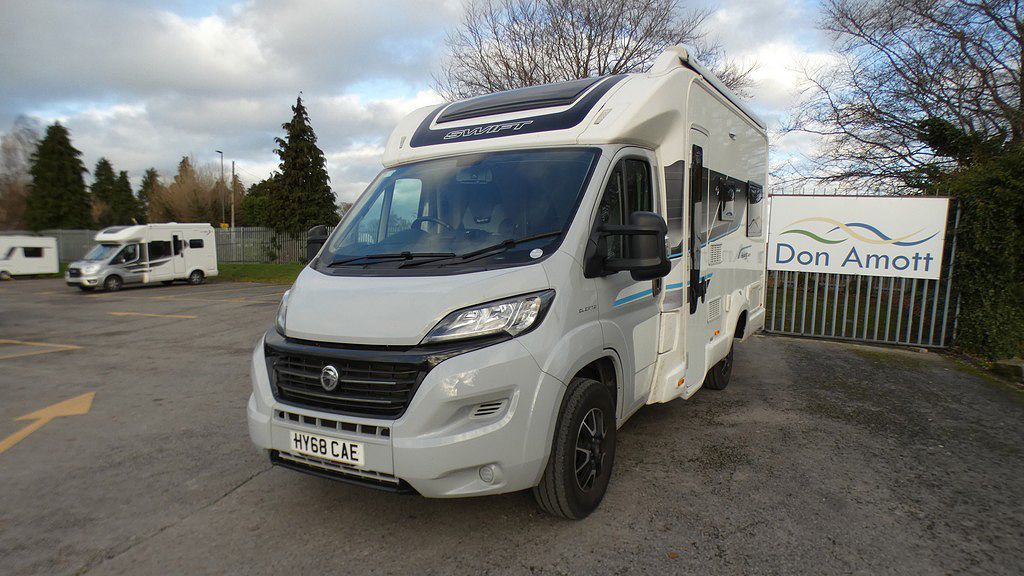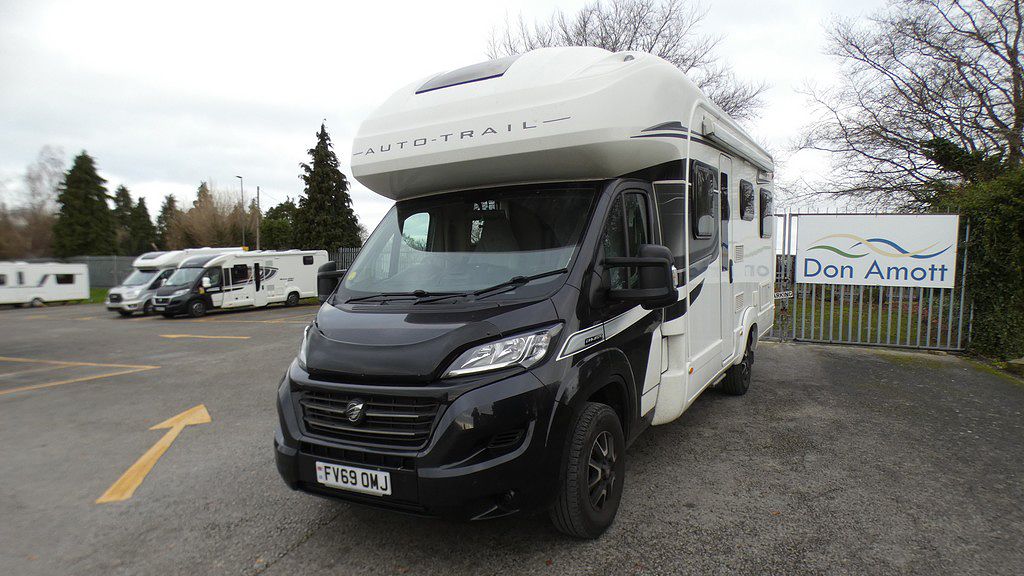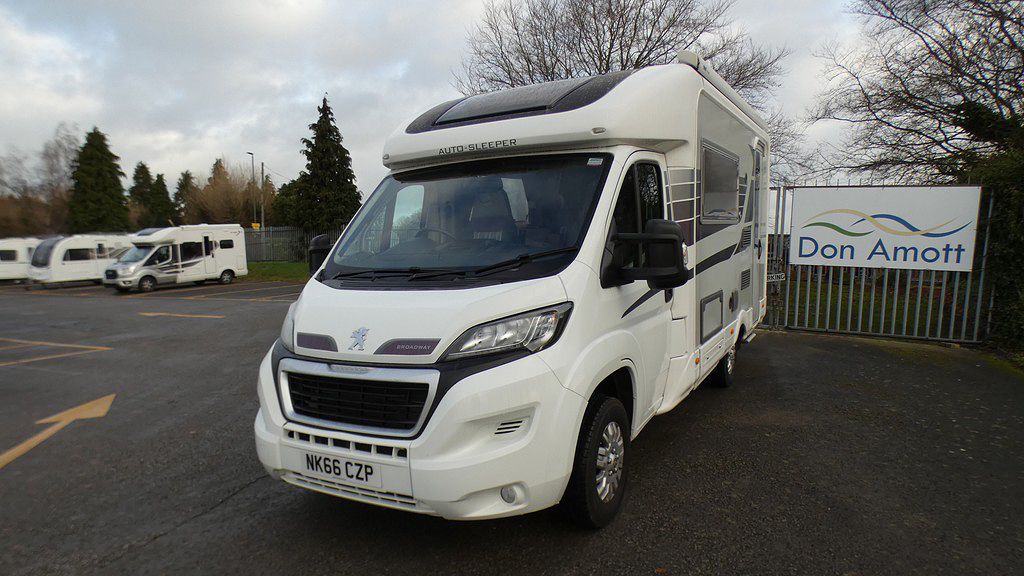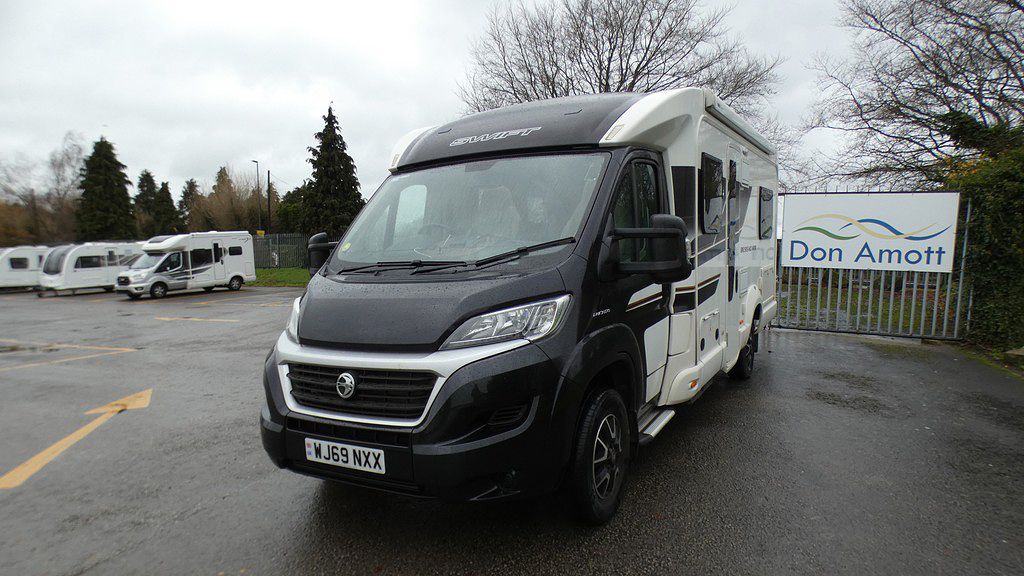Vote Now! Which are Best: Campervans or Motorhomes?
7 minutes well spent

There comes a time when every country has a serious decision to make. A time when the people face a choice that will impact their lives over the years to come. A choice which will determine how they live… Ladies and gentlemen, lovers of the open road, that time is now! Here at Don Amott it’s time for The Big Vote, as you put your X in the box and make your choice, so that we can answer the question ‘Which are best: Campervans or Motorhomes?
Of course, to make such a choice you have to be well-informed. You have to know what each candidate offers – and so, in this edition of our blog, to help you choose we’ll be showcasing the things that differentiate these two types of leisure vehicle.
While both of them offer unique benefits for travellers, they cater to different needs and preferences. This comprehensive guide serves as a sort of manifesto for each type of vehicle, if you like. We’ll delve into the key differences between campervans and motorhomes, including their construction, features, space and overall usability, which will help you decide where to put your X on the ballot paper.
First of All, Though, Why Do We Need a Choice?
The allure of venturing out on the open road and exploring the many terrific landscapes of the UK is very appealing – from well-worn tourist attractions to little-known treasures off the beaten track. Over recent years the interest in mobile accommodation options has increased – specifically campervans and motorhomes.
Both of these types of vehicle offer the freedom to travel at your own pace and the ultimate convenience of carrying living quarters with you (so there’s no admin faff of booking hotels, bnbs or air bnbs as you travel from place to place). But though campervans and motorhomes provide the same root solution for an on the road lifestyle – a place to live – they differ in several ways. Here, we present the key differences…
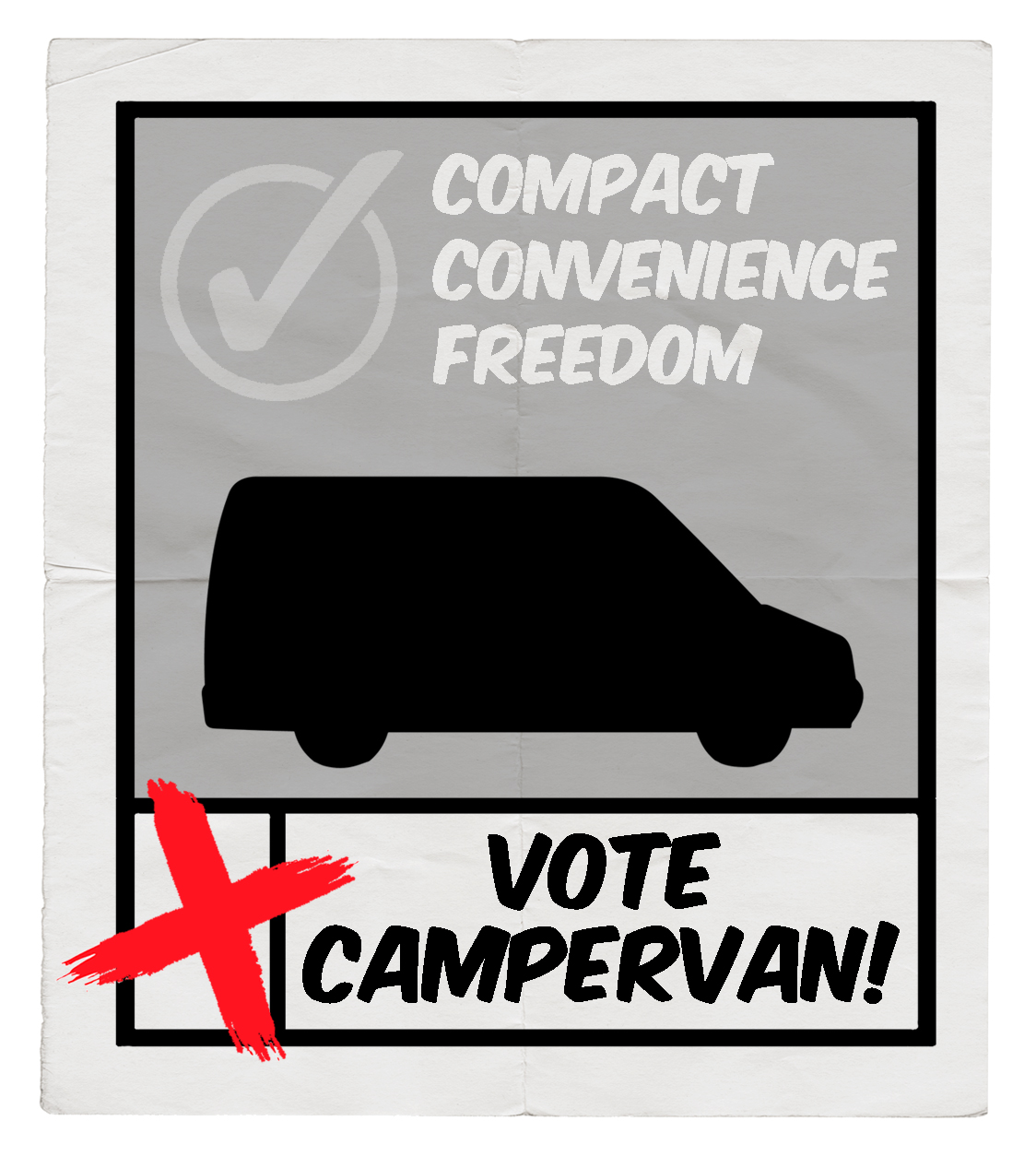
Size and Manoeuvrability
The most visually striking difference between motorhomes and campervans is their size. Campers are generally smaller and more compact than even modest motorhomes, as they are built on a standard van chassis (making them similar in size to large commercial vans). This means they are easy to handle, easy to manoeuvre and easy to park. Well, easier at least… The compact nature of campervans is ideal for when travellers are trying to navigate the narrow country roads and small villages around the UK, where space is much more likely to be at a premium.
Motorhomes are larger and more spacious than campervans and are built on a larger chassis. The increased size this provides means more living space and amenities, and therefore comfort and convenience, for travellers – but it can also make driving and parking a lot more challenging. Motorhomes are often much easier to master when you’re an experienced leisure vehicle driver, as they require more skill to drive. In addition, their size can limit access to certain areas (especially in rural parts of the UK where roads can be quite narrow).
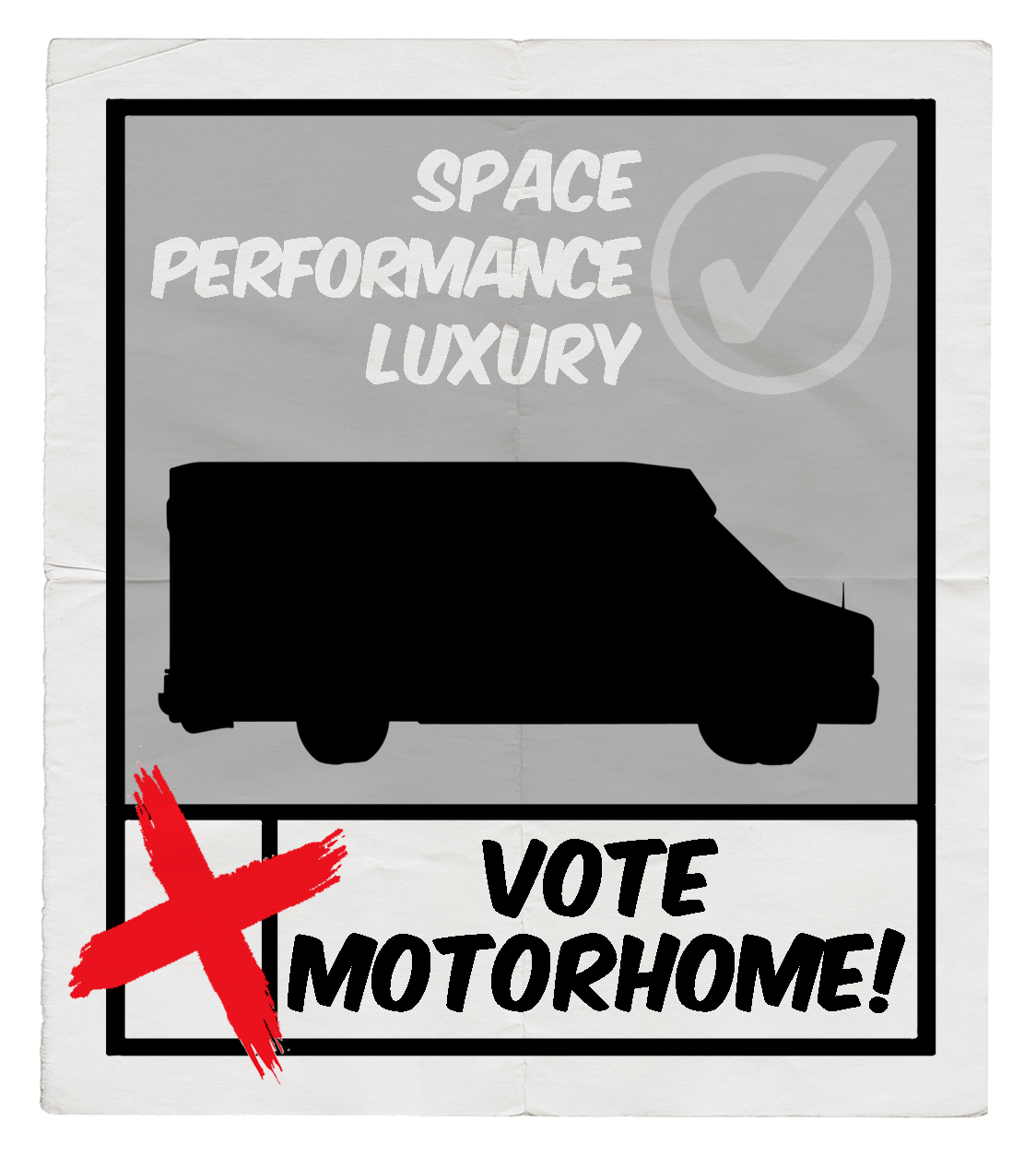
Versatility
The versatility of camper vans means they are very suited to a range of uses beyond just holiday travel. The compact size and ‘ease of use’ makes them ideal for weekend getaways and day trips, as well as everyday runners – so they are as useful to pick the kids up from school as they are to explore the Cotswolds! Campervans can also be used as mobile offices, taking advantage of the possibility of travelling around easily and working remotely from different locations.
Motorhomes are typically used for longer trips, for more extended periods of living on the road. They’re particularly popular with families who appreciate the space and comfort they offer on holidays rather than short weekend breaks, and those who appreciate travelling in a vehicle which feels more substantial as a day-to-day unit at the social level. The self-contained nature of motorhomes also makes them ideal for remote or rural travel, where additional amenities (such as those available on campsites and necessary for campervan travel) might be scarce.

Living Space and Amenities
We mentioned size in the last section, and this translates directly into the amount of living space on offer in campervans and motorhomes. Campers typically have much more modest living quarters, which have been economically (though cleverly) designed to squeeze every inch of functionality out of the available space.
They are likely to include a small kitchenette, a sleeping area (most likely converted from seating) and quite limited storage space. This can be a drawback for adventure-style travellers who need to carry a lot of gear for activities such as cycling, surfing or hiking. Creative packing and the use of external storage solutions like roof racks and bike carriers will help with this issue. It is also pretty rare to find a washroom in a campervan, with most travellers therefore reliant on finding external facilities when required or using those available at campsites along their journey.
Motorhomes, on the other hand, and as the name itself suggests, provide a much more home-like experience for travellers. In most models there will be separate sleeping quarters, well-equipped kitchen facilities, a dining and social area and often a washroom which will include a toilet and shower. Larger motorhome models will offer multiple sleeping areas (using layout-inspired combinations of fixed beds, bunk beds, convertible beds or drop-down beds) and even luxuries like air conditioning, infotainment systems and driver assistance features.
There will also be increased storage space which can accommodate more extensive equipment and supplies. This higher payload capacity also means more personal belongings and necessities can go on trips, enhancing the overall experience. The increase in functionality and comfort means motorhomes are much more suitable for longer trips – or for travellers who prioritise an increased standard of daily living.

Cost
The amount of money each type of vehicle costs is another significant factor setting campervans and motorhomes apart. Campers are generally less expensive to buy and less expensive to maintain than motorhomes. The combination of smaller size and simpler build translates to lower upfront costs and reduced running costs (expenses for fuel, insurance and maintenance).
Motorhomes are, as we have explained, larger in size and offer a greater array of facilities – so they naturally come with a higher price tag. The initial price is likely to be higher, and any ongoing expenses (fuel, insurance and maintenance) will also be an increase on those you might expect when running a campervan. However, for any traveller who intends to spend longer periods on the road or who values the increase in comfort, convenience and capability, that larger investment will be well worth it.

a) Driving licence:
Driving a campervan in the UK usually only requires a standard licence (as long as the vehicle’s maximum weight does not exceed 3,500 kg). This easy accessibility makes this type of vehicle a popular choice. Motorhomes, due to the increased size and therefore an increased weight, may require a different level of classification on a UK driving licence.
If the motorhome’s MAM is greater than 3500 kg, the driver will need to obtain a C1 category on their licence (which covers vehicles between 3500kg and 7500 kg). This requirement will involve additional training, tests and expense.
b) Fuel:
Another area where campervans might be preferable to motorhomes is fuel use. The smaller size and lighter weight mean they are likely to consume less fuel than motorhomes. This will translate to ongoing cost savings – and also means a campervan leaves a smaller environmental footprint.
Motorhomes, being larger and heavier, tend to have lower fuel efficiency. However, year on year there are advances in motorhome design and technology which are gradually improving fuel efficiency (and, for the environmentally conscious) reducing emissions. The leisure vehicle industry is seeing a growth in interest in electric and hybrid models, with some companies already issuing vehicles to the market which promise to lessen environmental impact.
c) Social:
Your vote choice between a campervan and a motorhome could also be influenced by social and community factors. Campervan culture is often associated with the adventure lifestyle, the vehicle used as a ‘basecamp’ for travellers who will be off cycling, surfing, climbing or hiking. Campervan enthusiasts tend to value the ability to explore off-the-beaten-path places and enjoy a much simpler way of living. The campervan community – both online and in the real world – is vibrant.
Motorhome owners prioritise comfort and convenience, and they are more likely to ‘live’ in their vehicle than use it as a mere base. Motorhome clubs (you can find nationally recognised organisations to join online) offer a sense of camaraderie, with regular organised rallies, events and meet-ups providing plenty of opportunities to connect with likeminded road-users. The motorhome community is known to be a welcoming environment for newcomers.
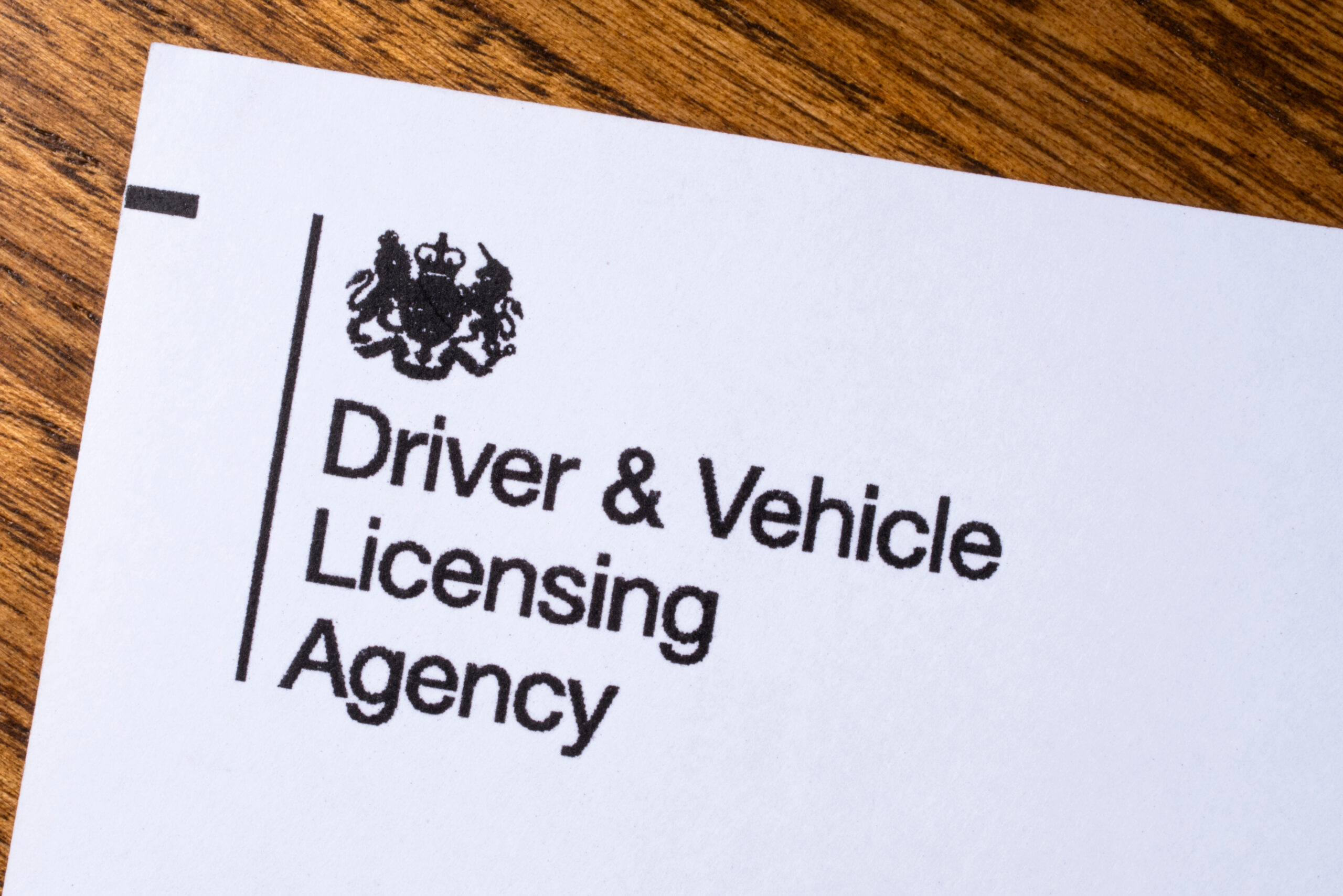
Image Credit: chrisdorney – stock.adobe.com
So, Which Should I Vote for? Campervans or Motorhomes?
Now we’ve reached to end of our general comparison of motorhomes and campervans, and it’s time to cast your vote! But what will be your deciding factor?
In the simplest terms possible, it is entirely down to you. There is no ‘right’ vehicle to vote for. Any decision should be based on how you want to use a leisure vehicle. Do you require a very easy to use van which can double as a holiday vehicle and a daily domestic runner, or do you crave a little more luxury and legroom over much longer periods out on the road?
At Don Amott we’re always available to talk you through any aspects of motorhomes or campervans that you might need to discuss – but, as a start, we hope that all of the factors we’ve described in the mini-manifesto above will help you decide where to put your all-important X!

We’ve got 100s of new and used stock for you to discover
The ultimate home of motorhomes, campervans & caravans sales in Derbyshire.

